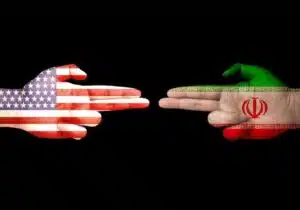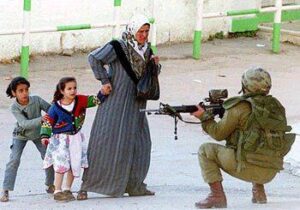
repentance of hur bin yazid riahi
repentance of hur bin yazid riahi
مدیریت
Author
Imam Hussein’s Encounter with the Army of Hur
On the first day of Muharram in the year 61 AH, Imam Hussein (peace be upon him) encountered Hur and his companions. After quenching the thirst of his followers, the time for the midday prayer arrived. Hajjaj ibn Masruq al-Ju’fi (one of the martyrs of Ashura) called the adhan on the order of the Imam. After the adhan and before the iqamah, Imam Hussein (peace be upon him) addressed Hur and his companions. After praising and thanking God, he said:
“O people, my excuse before God and you Muslims of Kufa is that I did not come to Iraq without reason. Your messengers came to me, and in your letters, you wrote that you had no imam. You asked me to come to you, believing that God would guide you through me. I have come now. If you are prepared to renew your pledge and assure me of your commitment, I will proceed according to your guidance. If not, and if you are displeased or concerned about my coming, I will return to where I came from.”
Hur and his companions did not respond to Imam Hussein (peace be upon him).
Hajjaj ibn Masruq al-Ju’fi performed the iqamah and both armies prayed together with Imam Hussein (peace be upon him). After the prayer, Imam Hussein (peace be upon him) spoke to Hur’s companions again and said:
“O people! If you are conscious of God and fear Him, and recognize the right of those who are worthy of it (i.e., the right of Islamic leadership should be for the divinely appointed and rightful imams), this will please God more. We, the family of the Prophet (peace be upon him), are more deserving to govern you and be the leaders of your religion and worldly affairs than those currently in power who oppress you and claim a highly sacred and sensitive position that they do not deserve. Such people who oppress and abuse you cannot be recognized as the successors of the Prophet (peace be upon him) or as guardians of the true religion and protectors of the Holy Quran.
If you are dissatisfied with us and do not recognize our right and your view is contrary to what was written in your letters, I will return from where I came.”
Hur ibn Yazid al-Riyahi replied: “By God, I am unaware of these letters and messengers.” Imam Hussein (peace be upon him) instructed his servant, Uqbah ibn Sam’an (the servant of Rabab, the wife of Imam Hussein and an important narrator of the events of Ashura, who was captured on the day of Ashura and later freed), to take the letters of the people of Kufa to Hur and his companions. Hur still insisted that they had not written any letters and would not relinquish him until he was taken to Ibn Ziyad. Imam Hussein (peace be upon him) replied, “Death is closer to you than this.”
Imam Hussein (peace be upon him) and his companions, along with Hur and his followers, took a route neither to Medina nor to Kufa.
During this time, Hur advised Imam Hussein (peace be upon him) out of what he considered good counsel, saying, “By God, do not fight, for if you do, you will be killed.” Imam Hussein (peace be upon him) became upset and replied, “Are you threatening me with death? Will killing me bring you relief? My words here are similar to those of that Awsī man who wanted to aid the Prophet (peace be upon him) but was warned by his cousin that he would be killed. The Awsī replied to his cousin, ‘I am going this way, and it is no disgrace for a noble person to die with honor. A noble person who has good intentions and does not lose the spirit of Islam in the fight, who does not withhold his life for aiding and accompanying righteous men, and who does not mingle with the wicked; in this case, if I survive, I will have no regrets, and if I die on this path, I will not be blamed. It is enough disgrace for a person to live in humiliation and suffer indignity.'”
Imam Hussein (peace be upon him) and Hur ibn Yazid al-Riyahi reached the settlement of Bayzah. Here,
Imam Hussein (peace be upon him) spoke to them again, clarifying that he had a duty to fulfill and that his only concern was the fulfillment of this duty.
The Repentance of Hur ibn Yazid al-Riyahi
According to Tabari, on the morning of Ashura, Hur ibn Yazid went to Ibn Sa’ad and asked him, “Will you fight against Hussein ibn Ali (peace be upon him)?” Ibn Sa’ad replied, “Yes, by God, it will be a severe battle.” Hur said, “What if you accept one of Hussein’s (peace be upon him) proposals?” Ibn Sa’ad responded, “If it were up to me, I would accept it, but Ibn Ziyad will not agree.”
After finding himself between heaven and hell, Hur said: “By God, I see myself between heaven and hell, and by God, I prefer nothing over heaven, even if I am torn apart and burned.”
He then went to Imam Hussein’s camp and said: “O son of the Prophet (peace be upon him)! My life is for you. I am the one who prevented you from returning and followed you to bring you to this land. By the God who there is no deity but Him, I did not think it would come to this; now I have come for repentance and am ready for martyrdom and sacrifice. Is there any remedy for me?”
The Imam (peace be upon him) replied: “Yes, God will accept your repentance and forgive you. What is your name?” Hur answered: “I am Hur ibn Yazid.”
The Imam (peace be upon him) said: “You are free, as your mother named you, and with God’s grace, you are free in this world and the hereafter.”
“Now dismount. It is better for me to fight on horseback for an hour and then dismount with the honor of martyrdom.”
The Imam (peace be upon him) said: “Do as you wish. May God have mercy on you.”
Hur then faced the enemy forces and said:
“O people of Kufa! May God cause your death and may He make your mothers mourn, for you invited this servant of God and, when he accepted your invitation and came to you, you refrained from supporting him. You, who once promised to sacrifice your lives for him, have now surrounded him, drawn your swords against him, and besieged him, depriving him of the air to breathe. You have prevented him from reaching the vast lands of God to protect himself and his family. You have treated him like a captive and denied him water from the Euphrates River, which both Muslims and non-Muslims drink and the desert animals bathe in. You have denied him and his women, children, and followers water, causing them severe thirst. After the Prophet (peace be upon him), how badly have you treated his descendants? If you do not repent today and abandon the plan to kill him, may God not quench your thirst on the Day of Judgment.”
These were the words of the blessed and fortunate man who, in less than an hour, underwent a profound change, dedicating himself to martyrdom. He became so devoted to the truth and sacrifice for it that he could no longer satisfy himself with worldly thoughts and hopes for life and gave up eternal happiness.
“Allah is the guardian of those who believe; He brings them out of darkness into light.”



Be the first to share your thoughts!